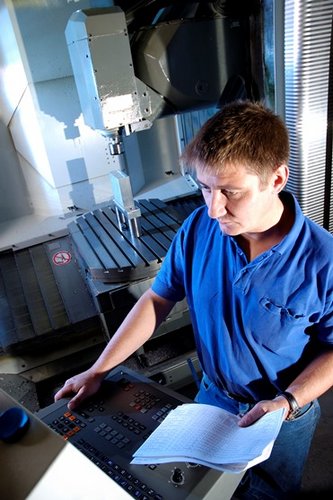25 years of automotive supply industry in Saxony-Anhalt

The development of the motor vehicle stretches back over 150 successful years
Over the past 25 years, several companies in Saxony-Anhalt have played an active role in this success story, as the reunification in 1990 saw the beginning of a process of specialisation in the mechanical engineering industry that had always been a key sector in the state. Due to noteworthy research projects, close collaborations between science and industry and strong networks, an internationally acknowledged and respected supply industry for mobility and logistics has developed in Saxony-Anhalt.
"In Saxony-Anhalt we depict the entire value added chain: from research, to development, to prototyping, through to series production, our innovative automotive supply industry is first rate," says Dr. Jürgen Ude, Board Chairman of the MAHREG Cluster, summarising the current situation. Following the reunification, the expertise in the mechanical engineering industry was further developed, extended and specialised. Due to its proximity to a range of car manufacturers, Saxony-Anhalt has focused on the automotive supply sector. To support collaborations, and above all else, to enable numerous smaller companies to access research projects, the MAHREG Automotive Cluster was established in the year 2000. "In recent years, MAHREG has become established as a brand," explains Ude. And his enthusiasm does not end at national borders. Collaborations with other federal states and on the international level have opened up promising opportunities to companies in Saxony-Anhalt both large and small. "At a time of internationalisation with high pressure on costs and a strong degree of dynamism, small scale suppliers can only survive with active collaborations. Yet these small scale specialists also provide ideas for innovations," says Ude, describing the variety in the automotive supplier industry in Saxony-Anhalt. "Lighter, more efficient, more effective, safer and more competent – such are the attributes of the forward-looking components in the area of automotive design, the development of which we are actively supporting."
Yet automotive is only part of the key market that has been defined for Saxony-Anhalt of "mobility and logistics". Energy efficient, low emissions vehicles and manufacturing technologies as well as intelligent multi-mode transport systems will determine the market in the future. And on this basis, the ELISA Initiative (electric mobility, light and intelligent for Saxony-Anhalt) is an important instrument for advancing forward-looking developments.
In this way, close collaborations between companies, universities and university-spanning research organisations have created a high potential for innovation in Saxony-Anhalt.
One company with potential for innovation is citim GmbH in Barleben, as proven by its success story. Established as a technology-oriented start-up at Otto-von-Guericke University in 1996, the company now works at the international level. Specialising in additive component manufacturing in the 3D printing process, it manufactures prototypes, small and specialist series products for air and space travel, medical technology and the automotive industry. It successfully completed its first step towards internationalisation with the opening of a location in the USA in 2014. In Barleben in the heart of Saxony-Anhalt, a new building is currently being constructed as its European headquarters. “The proximity to universities, technical colleges and research organisations in the federal state is a key advantage for us,” highlights Managing Director of citim, Dipl. eng. Andreas Berkau. He sees his company as being a binding link between the worlds of science and business. “The close regional and cross-regional cooperation is important for being able to recognise the latest trends and act on a consistently market-oriented basis.” For this reason, citim GmbH has been a highly engaged network partner in the MAHREG Cluster right from the start.
The federal state of Saxony-Anhalt also supports the philosophy of the network with its regional innovation strategy. In this respect, the lead market of “mobility and logistics” is one of five markets of the future that have been defined by the federal state. The companies’ specialist knowledge that has been gained over the course of decades, their research expertise as well as the ideas-based potential and flexibility, primarily of smaller companies, are the basis for a successful future.
“The development over the course of the last decades has shown that the close networking of the worlds of politics, science and business supports stability and opens up future opportunities,” explains Jürgen Ude. “Together we will rise to the challenges that come our way and continue to provide positive support to the sector.”
